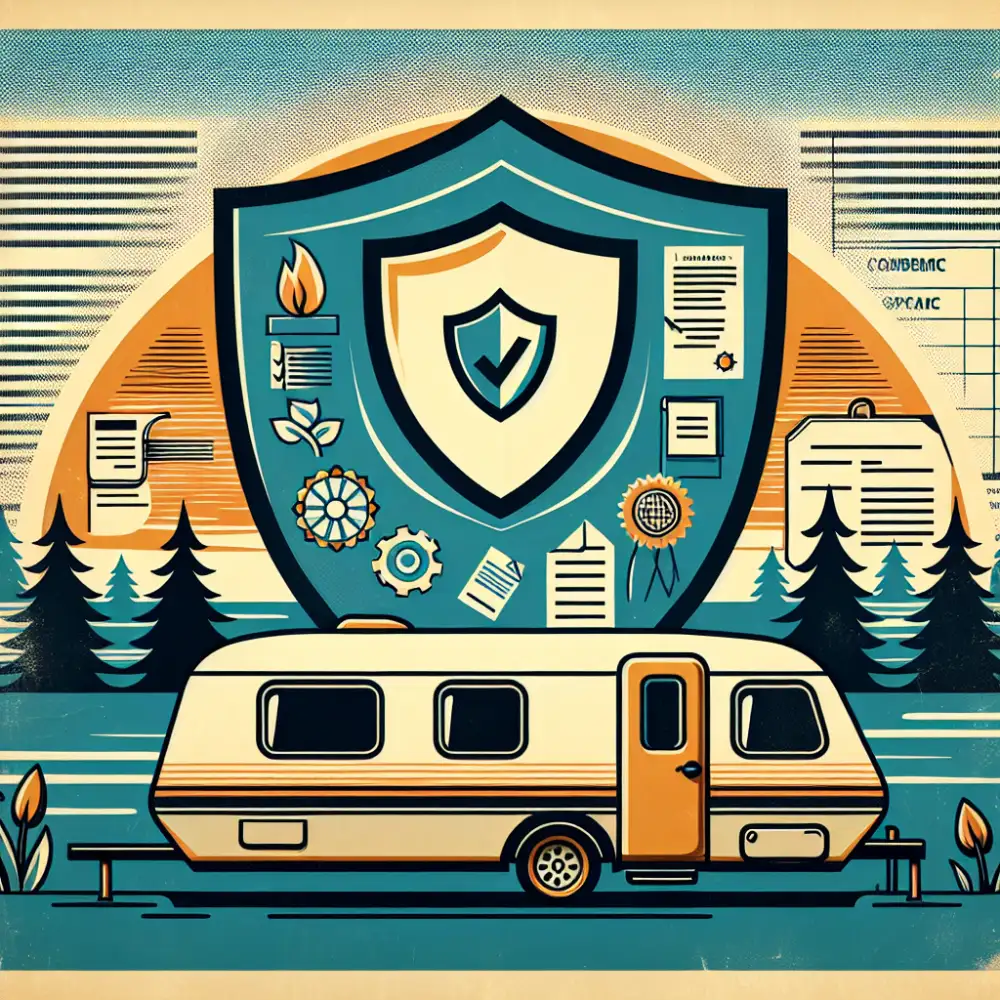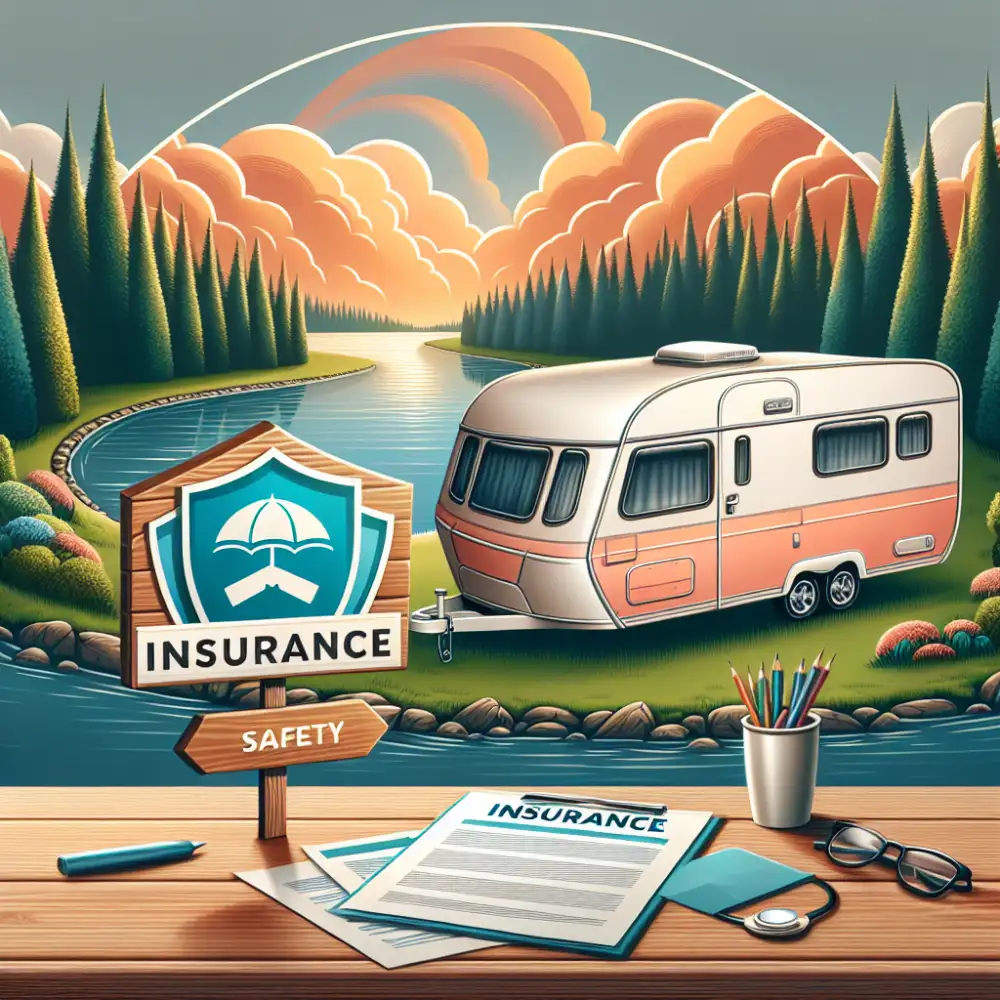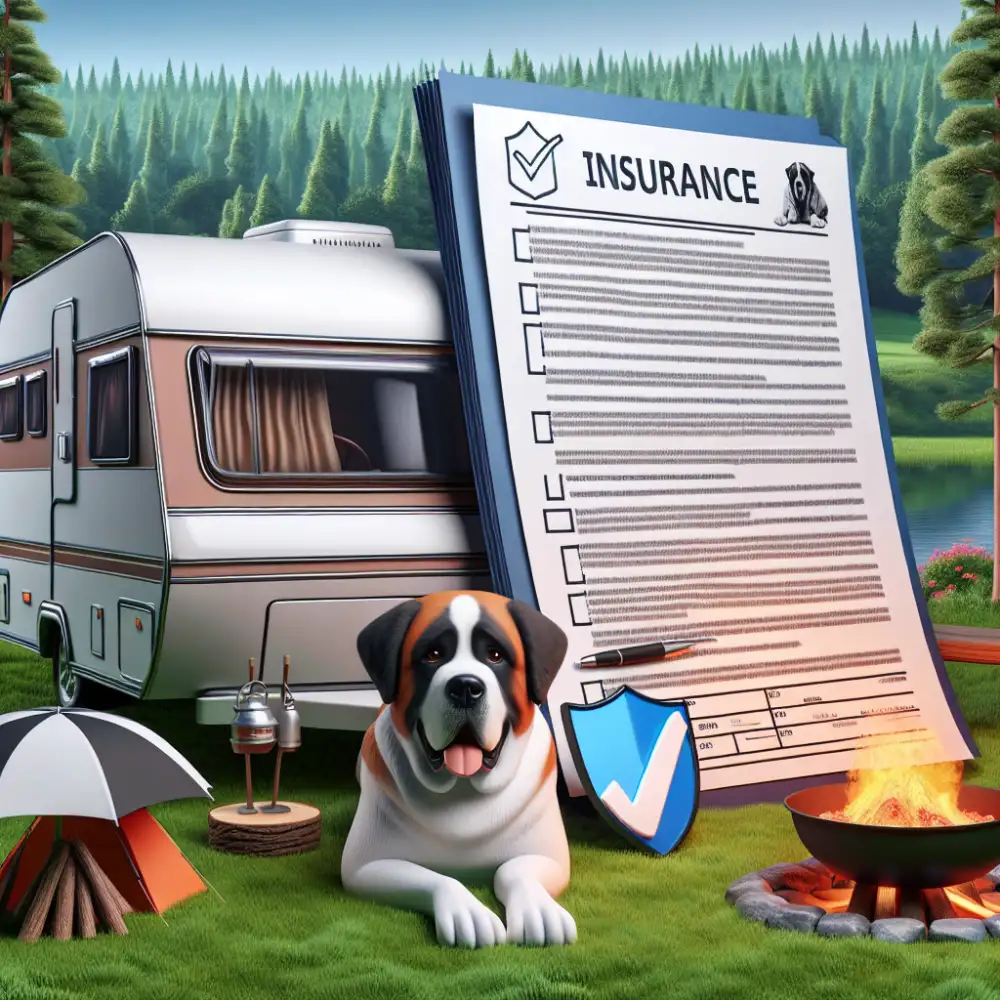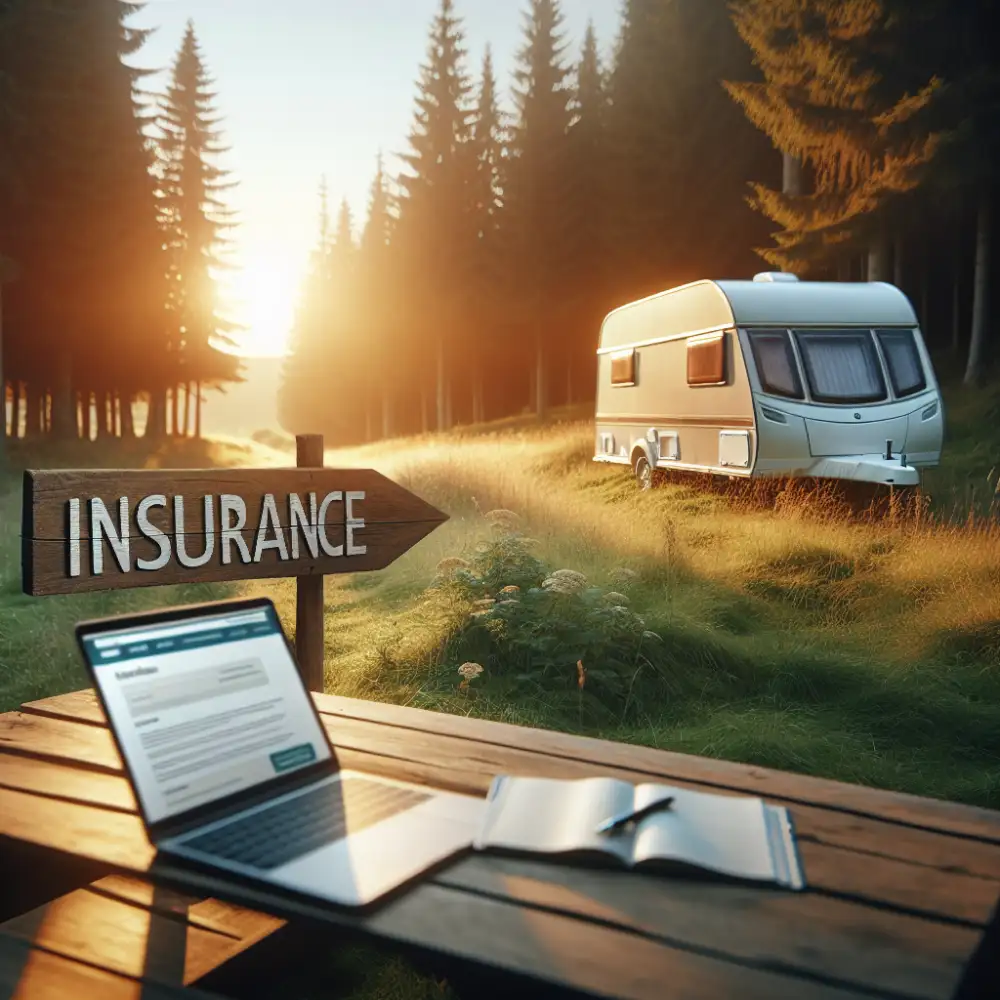Finance: Protect Your Home Away From Home With Caravan Insurance

- Caravan Insurance Costs
- Market Value vs. Agreed Value
- Types of Coverage Available
- Deductible Options and Impact
- Discounts for Safe Travelers
- Bundling with Other Policies
- Payment Plans and Options
- Claims Process and Procedures
- Choosing the Right Insurer
- Reading the Fine Print Carefully
- Understanding Policy Exclusions
- Tips for Lowering Insurance Premiums
- Importance of Regular Policy Reviews
Caravan Insurance Costs
The cost of caravan insurance can vary significantly depending on several factors. These include the value and type of your caravan, its age and condition, where you store it, and how often you use it.
Most insurance providers offer three levels of cover: third-party, third-party fire and theft, and comprehensive. Third-party is the minimum legal requirement and covers damage caused to others. Third-party fire and theft include fire and theft cover for your caravan. Comprehensive offers the most extensive protection, covering damage to your caravan, belongings, and liability to others.
When choosing a policy, consider what is important to you. Do you need cover for your belongings inside the caravan? Do you want protection if you need to cancel your trip?
You can often reduce the cost of your insurance by following some simple tips. Installing security devices, joining a caravan club, and paying annually rather than monthly can all help lower your premiums.
It's always a good idea to shop around and compare quotes from different insurers. This will help you find the best possible price for the cover you need. Don't just focus on the price, though. Make sure you understand what is and isn't covered by the policy.
Market Value vs. Agreed Value
When insuring your caravan, you'll come across two main valuation methods: market value and agreed value. Understanding the difference is crucial for choosing the right coverage. Market value refers to the amount your caravan is worth in the current market, considering depreciation. This means if your caravan is damaged beyond repair or stolen, the insurer will pay out what it would cost to replace it with a similar model in the same condition.
Agreed value takes a different approach. Here, you and the insurer agree on your caravan's value at the start of the policy. This value is typically based on a professional valuation and factors in any modifications or unique features. In the event of a total loss, you'll receive the agreed-upon sum, regardless of market fluctuations.
While market value policies often come with lower premiums, agreed value offers greater peace of mind. This is especially true for older caravans or those with custom features, where market value might not accurately reflect their true worth. Consider your caravan's age, condition, and any unique attributes when deciding between market value and agreed value insurance.
| Feature | Basic Cover | Mid-Range Cover | Premium Cover |
|---|---|---|---|
| Accidental Damage | Up to £5,000 | Up to £10,000 | Up to £20,000 |
| Theft & Malicious Damage | Included | Included | Included with tracking device discount |
| Third Party Liability | Up to £2 million | Up to £5 million | Up to £10 million |
| Contents Insurance | Up to £1,000 | Up to £2,500 | Up to £5,000 |
| European Cover | 30 days | 60 days | 90 days |
Types of Coverage Available
When insuring your caravan, you'll find a range of coverage options to suit your needs and budget. The most common types of caravan insurance include:

- Touring Caravan Insurance: Ideal for caravans you tow behind a vehicle, this policy typically covers accidental damage, theft, fire, and third-party liability while you're on the road or parked up.
- Static Caravan Insurance: Designed for caravans permanently stationed at a holiday park or site, this policy focuses on coverage at the fixed location, including protection against events like storms, floods, vandalism, and fire.
- European Caravan Insurance: If you're planning a European adventure with your caravan, this specialized policy extends your coverage to include travel and incidents within the EU.
You can further tailor your policy with optional extras:
- New for Old Cover: This optional add-on ensures that if your caravan is stolen or damaged beyond repair within a specific timeframe, typically the first few years, you'll receive a brand-new replacement.
- Contents Insurance: Protect your personal belongings inside the caravan, such as clothing, electronics, and camping gear, against theft, damage, or loss.
- Public Liability Insurance: Safeguard yourself financially if you're held liable for injury or damage to a third party or their property while using your caravan.
Remember that insurance policies and coverage options can vary between providers. It's essential to carefully review the policy documents and discuss your specific requirements with an insurance professional to ensure you have the right level of protection for your caravan and its contents.
Deductible Options and Impact
When insuring your caravan, you'll come across the term "deductible." This is the amount you pay out of pocket if you make a claim. Choosing the right deductible is crucial as it directly impacts your premium. A higher deductible typically means lower premiums, but you'll pay more if an incident occurs. Conversely, a lower deductible means higher premiums but less out-of-pocket expense when you make a claim.
Consider your financial situation and risk tolerance. If you have savings to cover a larger deductible, opting for a higher one can save you money on premiums. However, if a large upfront cost would strain your finances, a lower deductible might be more manageable.

Carefully review the policy documents to understand what's covered under each deductible option. Some policies may have separate deductibles for different types of claims, such as accidental damage, theft, or storm damage.
Remember that the cheapest option isn't always the best. Balance premium savings against your ability to afford the deductible if you need to make a claim. Discuss your specific needs and budget with your insurance provider to determine the most suitable deductible for your caravan insurance policy.
Discounts for Safe Travelers
Many insurance providers recognize the efforts caravan owners make to ensure safety and security. These discounts translate to tangible savings on your premiums. Let's explore some common discounts:
Security System Installation: Caravans equipped with approved tracking devices, immobilizers, or alarm systems are less likely to be stolen, leading to lower insurance costs.
Caravan Club Memberships: Belonging to recognized caravan clubs often comes with discounted insurance rates due to the collective bargaining power and resources these clubs provide.
Safe Driving Record: Maintaining a clean driving history without accidents or traffic violations demonstrates responsibility, making you eligible for lower premiums.
Multi-Policy Discounts: Insuring your caravan and other vehicles, like your car or home, with the same provider can often unlock significant discounts.
No Claims Bonus: Like car insurance, maintaining a claim-free record with your caravan insurance can lead to progressively lower premiums over time, rewarding your safe practices.
Remember, when inquiring about caravan insurance, always ask about potential discounts based on your profile and safety measures.
Bundling with Other Policies
Bundling your caravan insurance with other policies can often lead to significant savings and added convenience. Many insurers offer discounts when you purchase multiple insurance products from them. For example, you might consider bundling your caravan insurance with:
Home insurance: If you own your home, bundling your caravan insurance with your home insurance can be a smart move.
Contents insurance: This type of insurance covers the belongings inside your home, and some insurers may extend coverage to include the contents of your caravan when it's not in use.
Car insurance: Since you need a vehicle to tow your caravan, it makes sense to explore bundling options for your car insurance as well.
Travel insurance: When venturing further afield with your caravan, travel insurance becomes essential.


Before committing to a bundle, carefully review the coverage details of each policy to ensure it meets your specific needs. Compare quotes from different insurers to find the most cost-effective and comprehensive package for your caravan and other assets.
Payment Plans and Options
When it comes to paying for your caravan insurance, most insurers offer a range of plans to suit your budget and preferences. The most common options include:
Annual Payment: This involves paying your entire premium upfront for a year of coverage. It's often the most cost-effective option as you may benefit from a discount compared to paying monthly.
Monthly Payments: Many insurers allow you to spread the cost of your premium over monthly installments. This can be more manageable for your budget, but it might come with an additional interest or administration charge, increasing the overall cost of your insurance.
Direct Debit: Setting up a direct debit for your insurance payments ensures you never miss a payment and risk your policy lapsing. This method is usually offered for both annual and monthly payment options.
Before choosing a payment plan, carefully review the terms and conditions of each option, including any potential charges or interest rates associated with installment plans. Compare quotes from different insurers to find the most competitive price and payment plan that aligns with your financial situation. Remember, maintaining continuous coverage is crucial for protecting your caravan against unexpected events.
Claims Process and Procedures
If the unexpected happens and you need to make a claim on your caravan insurance, it's important to understand the process and procedures involved. The first step is to contact your insurance provider as soon as possible. Have your policy details to hand, as well as information about the incident, such as the date, time, and location. Your insurer will then guide you through the next steps, which may include providing evidence of the damage or loss, such as photographs or witness statements.
Depending on the nature of your claim, you may need to obtain quotes for repairs or replacements. Your insurer will advise you on approved repairers or suppliers. It's important to keep all documentation related to your claim, including correspondence with your insurer, receipts, and invoices. This will help to ensure that your claim is processed smoothly and efficiently.

Remember that your policy may have specific requirements or time limits for making a claim, so it's essential to familiarize yourself with these details. By following the correct procedures and providing all necessary information, you can help to ensure that your caravan insurance claim is settled fairly and promptly.
Choosing the Right Insurer
Finding the right insurer for your caravan is just as important as finding the right caravan itself. You want an insurance policy that gives you peace of mind, knowing you're covered if something unexpected happens. So, how do you go about choosing?
Start by thinking about what kind of coverage you actually need. Do you need coverage for the contents of your caravan, or just the caravan itself? Do you plan on traveling to remote areas, or sticking to caravan parks with on-site security? Your answers will help you narrow down the type of policy that's right for you.
Once you have a good understanding of your needs, it's time to start shopping around. Get quotes from several different insurers, and make sure you're comparing apples to apples. Pay attention to the coverage limits, excess amounts, and any exclusions that might apply.
Don't be afraid to ask questions! A good insurer will be happy to answer any questions you have about their policies. They can also help you understand the jargon and make sure you're getting the coverage you need.
Finally, read the fine print before you sign on the dotted line. Make sure you understand the terms and conditions of the policy, and don't be afraid to walk away if you're not comfortable with anything.
Reading the Fine Print Carefully
When it comes to caravan insurance, the devil is in the detail. It's tempting to just skim through the policy document and focus on the price, but that can be a recipe for disaster. Take your time to carefully read all the fine print. Pay close attention to the coverage limits, exclusions, and conditions.
What is covered for theft? Is there a limit on accidental damage claims? Does your policy cover your caravan while it's in storage or only when it's hitched to your vehicle and on the road? Understanding these details can save you from nasty surprises down the road.
Don't be afraid to ask your insurance provider for clarification on anything you don't understand. It's better to be safe than sorry. Remember, a well-chosen caravan insurance policy provides peace of mind, knowing you're protected if the unexpected happens.
Understanding Policy Exclusions
It's important to know what your caravan insurance doesn't cover. These are called exclusions. Common exclusions include:
Wear and tear: Insurance is for sudden and unexpected events, not gradual deterioration.

Personal belongings: Your caravan insurance may have limited coverage for personal items inside. A separate personal belongings policy or adding this coverage to your caravan insurance might be necessary.
Business use: Using your caravan for business purposes usually requires a different type of insurance.
Off-road use: Driving off-road can increase the risk of damage, so it's often excluded or requires additional coverage.
Leaving your caravan unattended: Extended periods where your caravan is left unattended might not be fully covered.
Drunk or drugged driving: Driving under the influence is illegal and will void most insurance policies.
Natural disasters: Some policies might have limited coverage for specific natural disasters like floods or earthquakes.
Always read your policy documents carefully to understand the specific exclusions that apply to your caravan insurance. If anything is unclear, contact your insurance provider for clarification. Understanding your policy exclusions helps you avoid surprises and ensures you have the right coverage for your needs.
Tips for Lowering Insurance Premiums
One of the easiest ways to potentially reduce your caravan insurance premium is to opt for a higher voluntary excess. This is the amount you'll pay upfront if you make a claim. Just make sure you can comfortably afford the higher excess if you need to claim. Security is a big factor for insurers when calculating premiums. Fitting your caravan with approved tracking devices, alarms, and hitch locks can significantly reduce your premium. Where you store your caravan when it's not in use can also impact your insurance costs. Storing it in a secure, locked location like a dedicated storage facility or your garage can lead to lower premiums compared to keeping it on the street. Insurers often offer discounts if you have multiple insurance policies with them. Consider bundling your caravan insurance with your car, home, or other insurance policies to see if you qualify for a multi-policy discount. Your caravan's age and value play a role in your insurance costs. Newer, more expensive caravans generally cost more to insure. Consider this when choosing a caravan and explore options like agreed value insurance for older models. Joining a caravanning club can sometimes unlock discounts on insurance premiums. These clubs often have partnerships with insurance providers that offer preferential rates to their members. Maintaining a good driving record and avoiding claims can lead to lower insurance premiums over time. Some insurers offer no-claims discounts, so aim to drive safely and responsibly. Shop around and compare quotes from different insurance providers before choosing a policy. Don't just focus on the price; consider the coverage offered and the insurer's reputation.
Importance of Regular Policy Reviews
Regularly reviewing your caravan insurance policy is just as important as choosing the right one initially. Life throws curveballs, and your needs might change due to a new caravan, different travel plans, or modifications you've made. An annual review helps ensure you have adequate coverage without paying for what you don't need. Maybe you've upgraded your caravan with pricey gadgets - you'll want to make sure they're factored into the policy's coverage for contents and accessories. Or perhaps you've decided to venture further afield, in which case, checking your policy covers you for travel in different countries or regions is essential. Without these reviews, you risk being underinsured and facing hefty costs if the unexpected happens.

Published: 24. 06. 2024
Category: Finance



